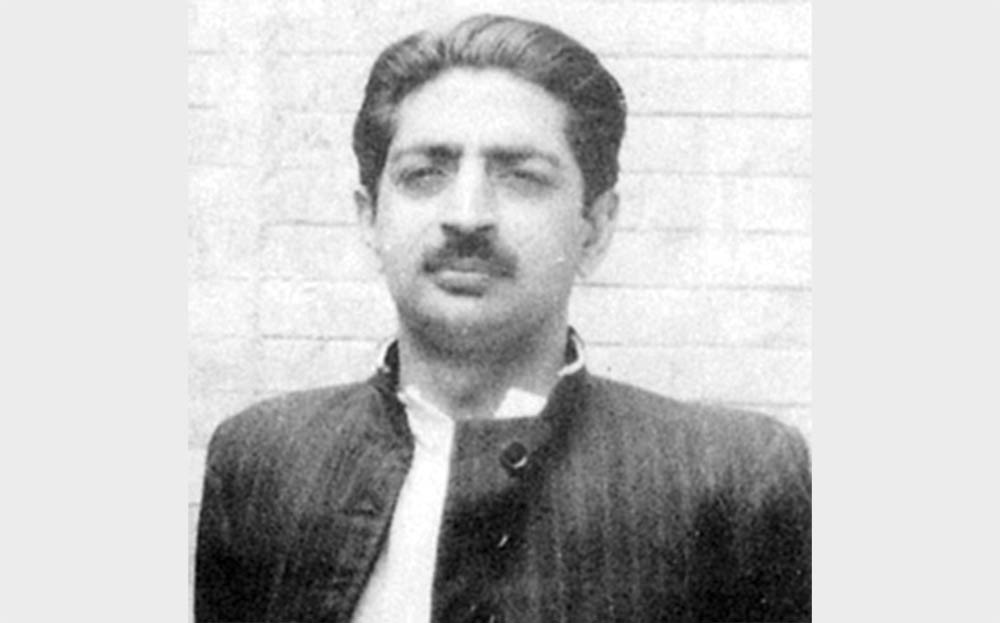

In my last piece, I ranged over the art of column writing. This is connected in my memory with another crucial aspect of journalism: editorship. I cannot trace the first memory of how the notion of a good editor firmed up in my mind. Thinking back, I can figure out that the first notion of editor was somehow handcuffed to the idea of resistance and censorship in the oppressive days of General Ziaul Haq’s dictatorship.
My first memory is that of A. T. Chowdry, who, as the editor of the Pakistan Times, was fired from his position by the government. A. T. Chowdry’s reputation as an editor ran quite high in those days and his sacking added to his reputation. He went on to edit The Muslim for a brief period after his ouster. Then he disappeared from the scene without leaving much of a trace.
The notion of a great editor took concrete shape when I fell in with the weekly Viewpoint’s staff towards the dying days of General Zia’s dictatorship. There I saw the editor of the magazine, Mazhar Ali Khan, up close and came to know how a great editor shapes the temper and climate of professional and principled journalism.
Mazhar Ali Khan, the legendary editor of The Pakistan Times, had founded the radical weekly the Viewpoint in the early days of Zia’s dictatorship -- a time when the soul of journalism was tested. The weekly was founded at a time when Pakistan was going through the worst period of press censorship as amply chronicled by Zamir Niazi. Since I was into writing, I used to visit the office which was not far away from Ganga Ram Hospital where I worked at the time. At the office, I became friends with Zafaryab Ahmed who was an assistant editor at the magazine. When I expressed my desire to contribute to the magazine, Zafaryab guided me into the quiet, lofty presence of Mazhar sahib in his small office, detached from the hubbub of the magazine’s main office which also housed the Awami printing press.
When I expressed my writerly desire, Mazhar sahib gravely nodded and said, "angrezi tay chakwal de jarnail bhee theek likhday nay tusi tay better hee likho gay," (Even generals of Chakwal write reasonably good English, you would do much better). I still remember this phrase, reading into it many meanings with years of hindsight and grey hair. I read it now as his belief in the supremacy of civilian mind over the military one. My first contribution submitted to the veteran Tahir Mirza, of the senior editorial staff, was on the reluctance of junior doctors to serve in rural areas.
I discovered that Mazhar sahib’s grasp of international politics was acute. He had a great sense of history and was very well-informed. I remember very clearly, he was considerably pensive when Saddam Hussain refused the last-minute Soviet mediation to stave off Iraq’s invasion of Kuwait. He said Saddam did not know what he was getting himself into by refusing Russia’s offer to mediate. Subsequent events proved him correct.
Mazhar Ali Khan could look beyond the headlines and far into the seeds of discord in the Middle East which have sprouted into a never-ending region-wide conflagration since then. I have always been amazed by the perspicacity of Mazhar sahib’s writings collected into two volumes and published by Oxford University Press. His writings should be compulsory reading for the new breed of journalists.
Whenever in despair, I dip into Mazhar sahib’s editorials and ‘Between the Lines’ columns to correct my own lens, clouded by fake news and embedded journalism.
The other great editor was Razia Bhatti of the Herald and then Newsline. Though I did not have any personal connection with her, based as she was in Karachi, yet my discussion with Mohammed Hanif, eminent novelist and public intellectual, introduced me to her style, method and attention to language and devotion to investigative journalism. She left an imprint on a crop of new journalists which includes Mohammed Hanif and Umber Khairi, now with the BBC and a columnist for this paper, and many others. This leads me to another attribute of a great editor -- they foster both new voices and professional journalists.
Mazhar Ali Khan nurtured Ayaz Amir, Zafaryab Ahmed, Imtiaz Alam, Khaled Ahmed, Cassandra Balchin and Adnan Adil.
I also tend to think that turbulent times throw up great editors. I have not mentioned Faiz because I have not heard much about him as an editor though he stands tall among the early run of good editors. This could be attributed to his reputation as a poet eclipsing his standing as an editor. Yet his talent as an editor is on abundant display in his collection of editorials in book form.
There are not many among the younger generation of editors with the mettle and core derived from the mould of old editors. Part of this owes to the changing nature of print journalism and the profusion of electronic and social media. A professional and political outlook that shaped a newspaper or magazine in the past is conspicuously absent from most of today’s media in Pakistan.
The broadcast media in Pakistan has also eroded the concept of editor. Now every cub reporter or greenhorn anchor doubles up as an editor with ill-formed and guided vacuity. Yet there still exist pockets of excellence in the editorial offices of mainstream and established newspapers. This flinty tradition continues in the mettle of some of the younger lot of editors.